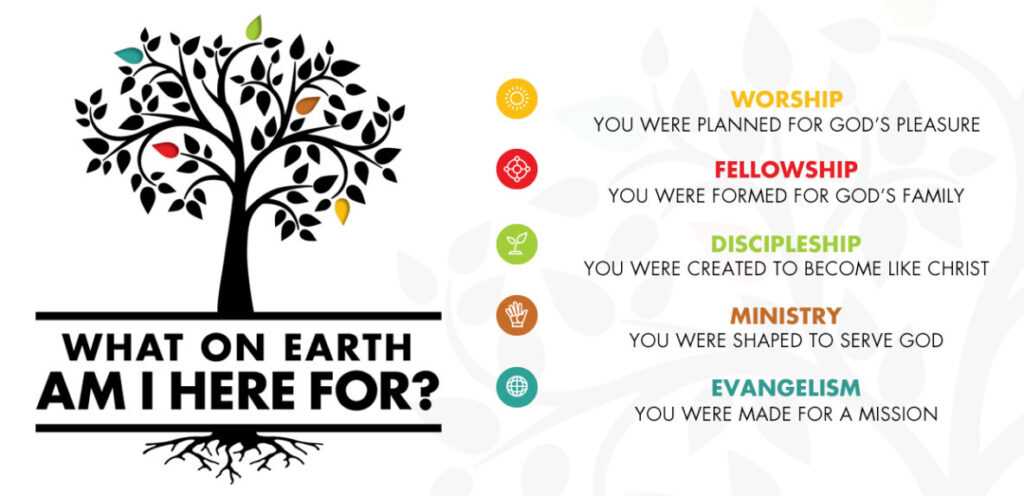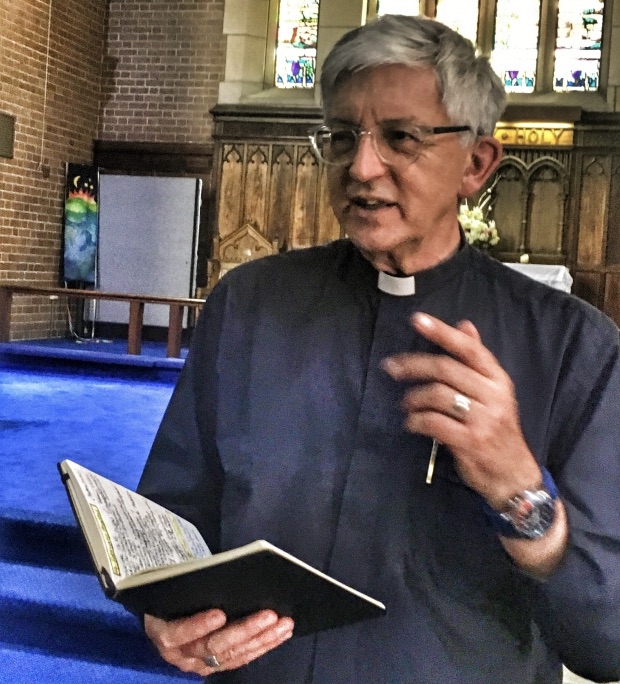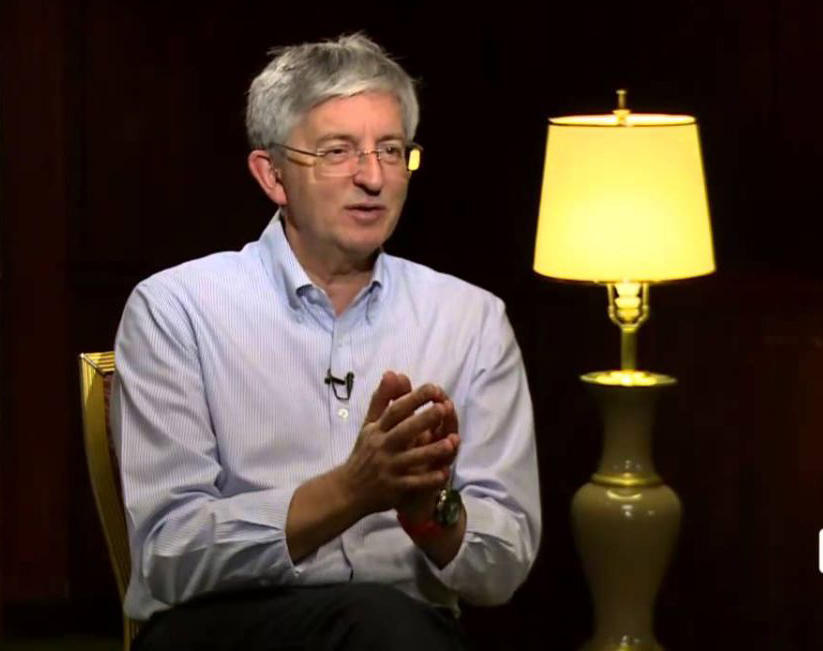Surrender is not a popular word, is it? Almost disliked as much as the word submission. It implies losing, and no one wants to be a loser. Surrender evokes unpleasant images of admitting defeat in battle, forfeiting a game, or yielding to a stronger opponent. The word is almost always used in a negative context. In today’s competitive culture we are taught to never give up and never give in. So, we don’t hear much about surrendering. If winning is everything, to surrender is unthinkable. We would rather dwell on winning, succeeding, overcoming and conquering not yielding, submitting, obeying, or surrendering. It is ironic then that surrender is at the heart of the Christian faith.
On Palm Sunday Jesus rode on a donkey not a horse. Jesus came in peace not war, to surrender not conquer. Jesus came to give his life as a ransom sacrifice, to be the Passover lamb, to make atonement with God. And when some in the crowd laid their coats on the ground, it was a sign of their surrender to him. Because surrender is the natural response to God’s grace and mercy. Our surrender is called many things in scripture: consecration, taking up your cross, dying to self, yielding to the Spirit, presenting ourselves as a living sacrifice. What matters is that we do it, not what we call it.
Category Archives: Exposition
Praise My Soul the King of Heaven (Psalm 103)
The “Pillars of Hercules,” which flank the entrance to the Straits of Gibraltar between Africa and Europe were from Roman times associated with the Latin phrase ne plus ultra, meaning “No More Beyond.” Certainly no one dared question the prevailing belief that there was nothing beyond the horizon. That was until 1492 when Christopher Columbus boldly sailed westward and discovered the New World. On his return, Spain celebrated with a new national logo. Coins were struck with two words: plus ultra meaning “More Beyond”. If you have experienced bereavement recently you know that ‘out of sight’ does not mean ‘out of mind’. But is there more beyond? More than simply the act of remembering the past? The Christian hope is that there is a new world beyond our horizon. Our Psalm this evening teaches us to look beyond our limited horizon, beyond what we can see, feel or touch. Psalm 103 inspires us to feel the heart beat of God’s love and realise there is indeed yet ‘more beyond’ our horizon to discover. More of God’s character to understand. More of his purposes to discover.
More of his love to experience. More of his commission to fulfil. More of his justice to proclaim. More of his love to share. More of his glory to praise. Psalm 103 inspired Henry Francis Lyte to write one of the most opopular hymns in the English language “Praise my soul the King of heaven”. No wonder. We have here in Psalm 103 the authentic utterance of a redeemed child of God, who piles up words to express his gratitude to the God of grace. There are three sections to the Psalm.
God’s personal blessings (Psalm 103:1-5)
God’s Covenant Mercy (Psalm 103:8-18)
God’s Universal Dominion (Psalm 103:19-22)
Let us consider them in turn and discern whether there is indeed “more beyond”
You Were Made for a Mission (Matthew 18:1-20)

What is your purpose in life? Do you know? The Bible says, your mission is to prepare for eternity. Because life is a preparation for eternity. You’re going to be doing four things in heaven forever and ever and ever. And God wants you to practice those here on earth. What are they? First is worship, you were planned for God’s pleasure – to know and love God. The second is fellowship, you were formed for God’s family – to learn to love each other. The third is discipleship, you were created to become like Christ. And the fourth is ministry, you were shaped for serving God. Now, once we have got those four down, we come to the fifth purpose, which is the only purpose you can only do on earth. You were made for a mission. In John 17, verse 18, Jesus said this – “In the same way that you gave Me a mission in the world, I give them a mission in the world.” In John 20:21, Jesus said, “As the Father has sent me, I am sending you.” To do what? Please turn with me to Matthew 18 because we are going to answer three questions. What is our mission? How do we fulfil our mission? And when will we complete our mission?
Finding your Place in the Body of Christ (Romans 12:1-8)
How do you find authentic, deep, lasting fulfilment in life? Is it a dream or can it be a reality? The problem is after years of bombardment from the secular media and advertising we are confused, cautious, sceptical. The daily diet on the TV, on the bill boards, newspapers and magazines tell us unashamedly that freedom and fulfilment comes from indulgence, luxury, space, exclusivity. The subliminal messages tell us to indulge ourselves. Fulfil our desires. Pursue pleasure. Stay free. Protect my space. Minimize commitments. Given such messages, it’s easy to understand why many people are cautious about commitment – whether its commitment in marriage, commitment to a charity or community service, commitment to our Church. We fear commitment, obligation, being tied down, restricted. If I commit myself, will I end up enjoying it or regretting it? Will life really be more fulfilling? Or just more draining? Well contemporary medical research provides a conclusive answer. Dr Paul Pearsall, the psychologist, writes in his book The Pleasure Prescription (Hunter House, 1996) “Modern research shows one of the most pleasurable of all human acts is also one of the healthiest things you can do for yourself and for others.
Gentle, caring selflessness results in significant health benefits.” In the mid 1980’s Allan Luks, author of, The Healing Power of Doing Good, conducted a survey of 3,300 volunteers.
Continue readingWhat Can I do When I am Really Desperate? (Matthew 15:21-28)

When you find yourself in deep trouble, when the rubber has hit the fan, it really does not matter whose fault it was or what caused it. All you really want is someone to help, someone to understand, someone to get you out of trouble. You see dying people, broken people, hurt people, used and abused people, don’t need theological explanations, or self-help tutorials, they need practical help, not next month, not next week, but today, right now, this very minute.
In Matthew 15 we meet a mother. A desperate mother. A mother with a sick child. Imagine that you’ve carried this baby in your womb for nine long months. You’ve been through the excruciating pain of childbirth. You’ve nursed her, fed her, washed her, changed her. Watched her grow, take her first step, say her first word. You can still remember her first day of school. How pretty she looked in that dress. The first time you let her out of your sight. She’s your little girl.
Continue readingIsrael’s Fault: God’s Dismay at her Disobedience (Romans 10)

From the early 19th Century right up to the First World War, the Tsarist Russian government relied heavily on foreign investment principally from Europe and America to fund their industrialisation. In 1913, for example, foreign investors held 49.7% of Russian government debt and owned nearly 100% of all petroleum fields, 90% of mines, 50% of chemicals and 40% of metallurgical industries. This amounted to the largest foreign in the world at the time. France was the major lender to Russia and French investors financed the creation of iron and steel industries and mining operations. In 1914, 80% of the Russian government debt was held in France and 14% in Great Britain… Devastated by losses during the First World War, Bolshevik revolutionaries overthrew the government on October 24, 1917. A year later, the Soviet government repudiated all bonds issued by the Tsarist regime and declared that all debts contracted by the Russian Empire were cancelled.[1]
Finding their bonds now worthless, some people used them as wall paper, others just burnt them or threw them away. Virtually everyone had given up seeing their money again. With the collapse of the Soviet Union, however, Mikail Gobachov came to power and promised to honour any bonds that could be found. Newspaper adverts appeared. People were asked to search their lofts and deposit boxes. Those who had kept faith in the Soviet bonds were finally rewarded.
Romans 9-11 is a little like that. Paul is answering an important question. What about God’s promises to the Jews? Has God gone back on His word? Were they just paper promises? “No,” says Paul, “At the right time God will pay out on his covenant promises made to Abraham, Isaac, Jacob, Joseph and David.” As we read these chapters, we discover God has not forgotten them.
As we observed last week, John Stott, helpfully summarises the message of Romans 9-11 in this way:
Continue readingIsrael’s Fall: God’s Purpose in Election (Romans 9:1-5)
Back in 1967, Nelson Bell, the editor of Christianity Today and father-in-Law of Billy Graham, wrote in an editorial for the journal,
“For the first time in more than 2,000 years Jerusalem is now completely in the hands of the Jews gives a student of the Bible a thrill and a renewed faith in the accuracy and validity of the Bible.”
Eleven years on, in 1978, President Jimmy Carter, claimed,
“The establishment of the nation of Israel is the fulfilment of biblical prophecy and the very essence of its fulfilment.”[1]
45 years on, that seems increasingly hard to defend when Israel is acknowledged by many human rights organisations to be an ethno-nationalist apartheid state. This week, the US/Canadian denomination, the Disciples of Christ, became the latest to adopt a resolution naming Israeli apartheid, acknowledging that “many of the laws, policies and practices of the State of Israel meet the definition of apartheid as defined in international law.”[2]
Continue reading“More than Conquerors” Freedom from Fear (Romans 8:26-39)

Do you know the most frequent command in the Bible? Do not be afraid. Why is that do you think? Because from the moment of our birth to the moment of our death, our default position is fear. That is why we fit locks on our doors, bars on our windows, security lights, CCTV, why we buy travel insurance, car insurance, indemnity insurance, home insurance, health insurance, life insurance, warranties, guarantees, virus software, backup hard disks, and in some countries more than others, purchase flack jackets, pepper spray, knives, hand guns, shot guns, and semi-automatic weapons. Fear is our default position.
In our three-part journey though Romans 8, following the Revised Common Lectionary, we have so far discovered three of our freedoms as Christ followers: Freedom from Judgement. Freedom from defeat. Freedom from discouragement. The fourth freedom? Today we are going to explore freedom from fear.
“And we know that in all things God works for the good of those who love him, who have been called according to his purpose. For those God foreknew he also predestined to be conformed to the image of his Son, that he might be the firstborn among many brothers and sisters. And those he predestined, he also called; those he called, he also justified; those he justified, he also glorified.” (Romans 8:28-30)
Continue readingFour Throne Rights of God’s Children (Romans 8:12-25)
Gentle natured Gregory, passed into eternity, aged 69, forgotten and alone in a cell of the women’s jail in Dade County, Miami. Married four times with six children he had once been a celebrity and successful paediatrician. But Gregory succumbed to alcoholism and his license to practice medicine was suspended. Haunted by self-doubt and unable to live in the shadow of his father, he had died known as Gloria in a women’s jail, in high heels, a transvestite. When he was just 19, Gregory’s father blamed him for his mother’s death from cancer and did not speak to him for ten years before killing himself in precisely the same way Gregory’s grandfather had done before him. In 1936, Gregory’s father wrote a short story, ‘The Capital of the World’ about a Spanish father who tried to be reconciled to his son who had run away from home to Madrid. Now remorseful, the father took out an advert in a national newspaper “Paco meet me at Hotel Montana noon Tuesday, all is forgiven, Papa.” Paco is a common name in Spain, and when the father goes to the square he finds eight hundred young men names Paco waiting for their fathers.

How do you Prefer your Venite? Strong or Skinny? (Psalm 95)

Except on Easter Day, “upon which another anthem is appointed’, every single morning of the year, in every parish in England, all God’s people should gather together to encourage one another with the words of the Venite, exultemus Domino– ‘O come, let us sing unto the Lord’.
Well, at least that was what Thomas Cranmer and the English Reformers intended, which makes this psalm – Psalm 95 the most frequently and most widely recited hymn in the world.[1]
Indeed, Psalm 95 has been used in daily worship for at least 1,600 years and probably for much longer. Around 320 AD, Athanasius wrote: “Before the beginning of their prayers, the Christians invite and exhort one another in the words of the 95th Psalm.” Not surprising therefore, Peter Toon observes, at the beginning of the English Reformation, this “Invitatory Psalm” is described in the Primer (1543) of Henry VIII as “A Song stirring to the Praise of God.” And what a stirring summons it is! In the Booke of The Common Prayer (1549), Psalm 95 is very near the beginning of “’An Ordre for Mattyns dayly through the Year’. From then onwards Psalm 95 was a required part of Morning Prayer or Matins.”[2]
